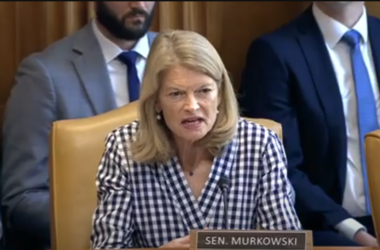State lawmakers are considering a bill that would clarify drivers’ employment status for app-based delivery services like Instacart, DoorDash, and Uber Eats. Senate Bill 35 (SB 35), introduced by Sen. Jesse Bjorkman (R-Nikiski), aims to ensure that these drivers are recognized as independent contractors rather than employees under state labor laws.
SB 35 was discussed at a hearing before the Senate State Affairs Committee on Mar. 18. Bjorkman says the bill is necessary to protect the flexibility that many gig workers value while also ensuring that delivery services can continue operating in Alaska without unnecessary regulatory burdens.
“There’s been an interpretation—I think an erroneous one—by the Department of Labor that those drivers should be treated as employees,” Bjorkman said. “But clearly, with the independence of those drivers and their desire to work their own hours and take the assignments they want, they should be treated as contractors.”
Bjorkman argues that the freedom to set hours and choose assignments is a fundamental aspect of gig work, making a traditional employee-employer relationship inappropriate for drivers working with app-based delivery platforms. He warns that if the Department of Labor’s interpretation stands, it could threaten the availability of these services in Alaska.
“Instacart, DoorDash, and other delivery apps provide services that many Kenai Peninsula residents have come to rely on,” Bjorkman said. “Drivers appreciate the opportunity to work for themselves, setting their own schedules and deciding how much they want to work. Senate Bill 35 makes it clear that these drivers are independent contractors, preventing the kind of bureaucratic overregulation that could force these companies out of the state.”
The bill mirrors legislation passed in other states where the status of gig economy workers has been debated. In those states, proponents argued that classifying drivers as employees would impose costly requirements on companies, potentially leading them to scale back or discontinue operations in regions where the business model becomes unsustainable.






